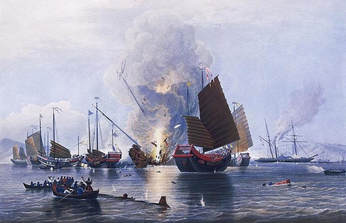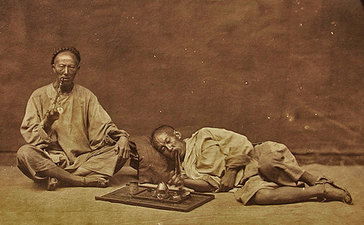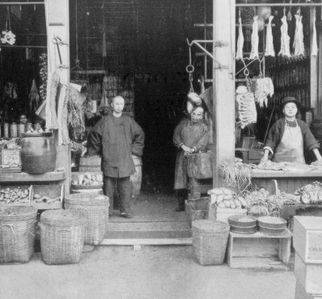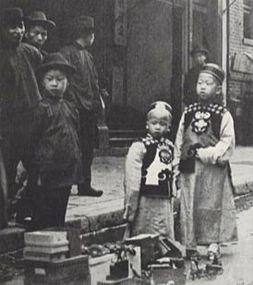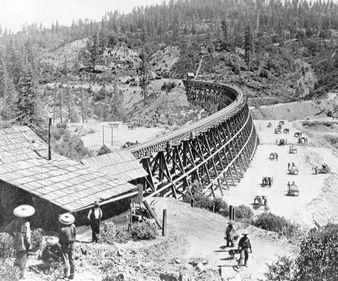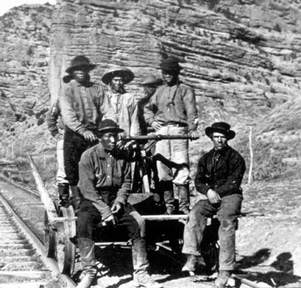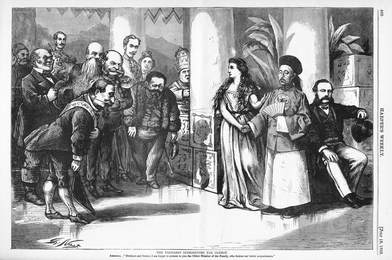In the mid-nineteenth century, China was plagued by famine, political turmoil, and foreign wars under the declining Qing dynasty.
|
"Day after day I sat at home. Hunger gnawed. What could I do? I was so hungry one day that I took a brick, pounded it to bits, and ate it. My husband sold everything we owned. There was nothing left for us in this land."
-Ning Lao, 1857 (The Autobiography of a Chinese Working Woman) |
|
|
Following the 1848 discovery of gold in California, the United States became the land of opportunity and the Gold Rush epitomized the American Dream. Inspired by prospects of economic success and eager to leave their troubled environment behind, the Chinese immigrated in large numbers to the West Coast.
"Just talk about going to the land of the Flowery Flag and my countenance fills with happiness. Not without hard work were one thousand pieces of gold dug up and gathered together. There were words of farewell to the parents, but the throat choked up first. There were many tears flowing face to face when parting with the wife. Waves big as mountains often astonished this traveler. Do not forget this day when you land ashore. Push yourself ahead and do not be lazy or idle."
-Chen Hui, 1853 ("Across Generations: Immigrant Voices") |
Chinese immigrants became instrumental builders of the Transcontinental Railroad, which connected the country from California to Iowa.
|
"The Chinese are the backbone of the infrastructure that built this nation. Indeed, by the height of the railroad construction effort in 1868, over 12,000 Chinese immigrants were employed, comprising about 80 percent of the workforce."
-Bill Moyers (PBS) "If it [the Transcontinental Railroad] is ever built, it will be the work of giants."
-William Tecumseh Sherman, 1865 ("Letter") |
|
In 1868, the Burlingame Treaty encouraged open immigration between China and America.
"The United States of America and the Emperor of China cordially recognize the inherent and inalienable right of man to change his home and allegiance, and also the mutual advantage of the free migration and emigration of their citizens and subjects respectively from the one country to the other." -Burlingame Treaty, 1868 |
| Burlingame Treaty Full Transcript | |
| File Size: | 146 kb |
| File Type: | |
By 1882, there were over 300,000 Chinese in the United States. Their growing presence would lead to one of the most controversial pieces of legislation in the nation's history.
"For the Chinese journeying across the Pacific, the greatest threat would come not from the harshness of nature, but from the cruelty of fellow humans and the racism endemic to their beloved 'Gold Mountain.'"
-Iris Chang (The Chinese in America)
-Iris Chang (The Chinese in America)
